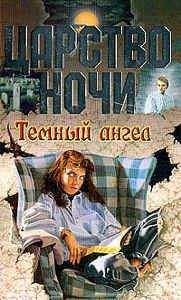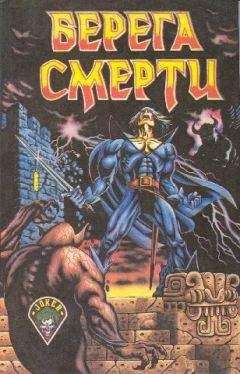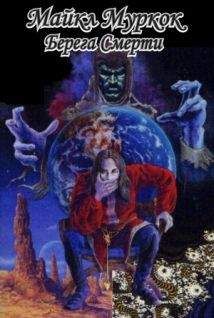Майкл Муркок - Английский язык с М. Муркоком
birches [bə: ʧɪz] answered [ˈɑ:nsəd] obsolete [ˈɔbsəli:t] inhabited [ɪnˈhæbɪtɪd] forehead [ˈfɔrɪd] abandoned [əˈbændənd] badger [ˈbæʤə]
As Corum reached the sweet-smelling pines and birches of the forest a wren began to sing, was answered by the croak of a rook, and both fell silent as if startled by the sounds their own throats had made.
Corum rode on through the forest until the whisper of the sea dimmed behind him and the mist began to give way before the warming light of the rising sun. This ancient forest was familiar to him and he loved it, for it was here he had ridden as a boy and had been taught the obsolete art of war which had been considered by his father as useful a way as any of making his body strong and quick. Here, too, he had lain through whole days watching the small animals that inhabited the forest — the tiny horselike beast of grey and yellow which had a horn growing from its forehead and was no bigger than a dog, the fan-winged gloriously coloured bird that could soar higher than the eye could see and yet which built its nests in abandoned fox and badger sets underground, the large, gentle pig with thick, curly black hair that fed on moss, and many others.
Prince Corum realised (осознал; to realise — представлять, осознавать; осуществлять) that he had almost forgotten (что он почти забыл; to forget-forgot-forgotten) the pleasures of the forest (удовольствия леса = как хорошо быть в лесу; pleasure — удовольствие, наслаждение, развлечение), he had spent so long inside the castle (он провел так долго = много времени внутри замка = не выходя из замка). A small smile touched his lips (легкая улыбка коснулась его губ; small — маленький, слабый) as he looked about him (когда он огляделся; to look about — оглядываться по сторонам, осматриваться). The forest, he thought (лес, подумал он; to think), would endure for ever (будет существовать вечно; to endure — выдерживать испытание временем, длиться; терпеть). Something so beautiful could not die (нечто такое прекрасное не может погибнуть).
But this thought put him (но эта мысль привела его; to put — класть, помещать; выражать, приводить в определенное состояние; to put-put-put), for some reason (по какой-то причине), in a melancholy mood (в меланхолическое настроение; melancholy — мрачный, унылый, подавленный) and he urged his horse (и он заставил своего коня; to urge — подгонять, подстегивать, вынуждать) to a somewhat faster gait (/перейти/ на более быстрый аллюр; somewhat — отчасти, несколько; довольно; gait — походка, манера ходьбы).
pleasure [ˈpleʒə] touched [tʌʧt] endure [ɪnˈdjuə] beautiful [ˈbju:tɪf (ə) l] die [daɪ] melancholy [ˈmelənkəlɪ] urged [ə: ʤd]
Prince Corum realised that he had almost forgotten the pleasures of the forest, he had spent so long inside the castle. A small smile touched his lips as he looked about him. The forest, he thought, would endure for ever. Something so beautiful could not die.
But this thought put him, for some reason, in a melancholy mood and he urged his horse to a somewhat faster gait.
The horse was glad to gallop (конь был рад скакать галопом) as fast as Corum desired (так быстро, как Корум желал; to desire — сильно желать, жаждать; просить, требовать), for it also knew the forest (потому что он тоже знал лес) and was enjoying the exercise (и наслаждался бегом; exercise — упражнение, физическая зарядка, тренировка). It was a red Vadhagh horse (это был рыжий вадагский конь; red — красный, алый, рыжий) with a blue-black mane and tail (с иссиня-черной гривой и хвостом) and it was strong, tall and graceful (сильный, высокий и грациозный), unlike the shaggy, wild ponies (в отличие от косматых, диких лошадок; pony — пони, малорослая лошадь) that inhabited the forest (что обитали в лесу). It was mantled in yellow velvet (он был накрыт желтой бархатной /попоной/; to mantle — покрывать, укрывать) and hung about with panniers (/два/ короба висели по бокам; to hang — вешать, прикреплять, висеть, болтаться; about — кругом, недалеко; означает наличие предметов или качеств), two spears (два копья), a plain round shield (простой круглый щит; plain — ясный, явный, обыкновенный) made of different thicknesses of timber (сделанный из нескольких слоев дерева; different — другой, различный; thickness — плотность, толщина; слой; timber — лесоматериалы, древесина), brass (меди; brass — латунь, желтая медь), leather and silver (кожи и серебра), a long bone bow (длинный костяной лук; bow — самострел, лук; дуга) and a quiver (колчан) holding a good quantity of arrows (содержавший большое количество стрел; good — хороший, здоровый; служебное слово для усиления). In one of the panniers (в одном коробе) were provisions for the journey (была провизия для путешествия; journey — путешествие, поездка, путь), and in another (в другом) were books and maps (книги и карты) for guidance and entertainment (для навигации и развлечения; guidance — руководство, навигация).
exercise [ˈeksəsaɪz] graceful [ˈɡreɪsful] velvet [ˈvelvɪt] pannier [ˈpænɪə] bow [bəu] leather [ˈleðə] quiver [ˈkwɪvə] quantity [ˈkwɔntɪtɪ] journey [ˈʤə: nɪ] guidance [ˈɡaɪd (ə) ns]
The horse was glad to gallop as fast as Corum desired, for it also knew the forest and was enjoying the exercise. It was a red Vadhagh horse with a blue-black mane and tail and it was strong, tall and graceful, unlike the shaggy, wild ponies that inhabited the forest. It was mantled in yellow velvet and hung about with panniers, two spears, a plain round shield made of different thicknesses of timber, brass, leather and silver, a long bone bow and a quiver holding a good quantity of arrows. In one of the panniers were provisions for the journey, and in another were books and maps for guidance and entertainment.
Prince Corum himself wore a conical silver helm (сам принц Корум носил конусообразный серебряный шлем; to wear-wore-worn) which had his full name (который имел = на котором его полное имя) carved in three characters (/было/ вырезано тремя символами: «в трех знаках»; to carve — вырезать /по дереву, кости и т. д. /, гравировать; character — буква, иероглиф, цифра; письмо) above the short peak (на коротком острие; above — вверху, выше) — Corum Jhaelen Irsei — which meant (что означало; to mean-meant-meant) Corum, the Prince in the Scarlet Robe (Принц в Алом Плаще). It was the custom of the Vadhagh (это был обычай вадагов) to choose a robe of distinctive colour (выбирать плащ различительного цвета) and identify themselves (и опознавать друг друга; to identify — устанавливать личность, определять) by means of it (посредством его), as the Nhadragh used crests and banners (тогда как надраги использовали плюмаж и знамена; crest — гребешок /петуха, шлема/, хохолок, плюмаж /украшение из перьев на головных уборах и конской сбруе/; banner — знамя, флаг, стяг) of greater complication (большей сложности). Corum wore the robe now. It had long, wide sleeves (он /плащ/ имел длинные, широкие рукава), a full skirt (широкий подол; full — полный, целый; широкий; skirt — пола, подол, юбка; край) that was spread back over his horse's rump (что расстилался назад поверх крупа его коня; to spread — развертывать/ся/, раскидывать/ся/, распространять/ся/; rump — крестец, круп, зад), and it was open at the front (был открытым спереди). At the shoulders (за плечами) was fixed a hood (был пришит капюшон; to fix — устанавливать, прикреплять; чинить) large enough (достаточно большой) to go over his helmet (чтобы закрывать: «идти поверх» его шлем; to go over — переходить /на другую сторону/, опрокидываться; прикрывать). It had been made from the fine, thin skin of a creature (он был сделан из прекрасной тонкой шкуры существа; skin — кожа, шкур, кожура) that was thought to dwell in another plane (которое, полагали, обитало в другой плоскости), forgotten even by the Vadhagh (забытое даже вадагами). Beneath the coat (под плащом; coat — пиджак, пальто; верхняя одежда) was a double byrnie (находилась двойная кольчуга) made up of a million tiny links (состоявшая из миллиона крошечных звеньев). The upper layer of this byrnie was silver (верхний слой этой кольчуги был серебряным) and the lower layer was of brass (а нижний слой — из латуни).
distinctive [dɪsˈtɪŋktɪv] identify [aɪˈdentɪfaɪ] front [frʌnt] double [dʌbl] byrnie [ˈbə: nɪ] layer [ˈleɪə]



